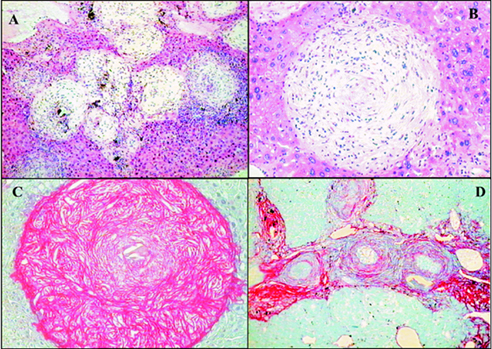Weaning Swiss mice were percutaneously infected with 30 cercariae of Schistosoma mansoni and submitted to a shifting either from a deficient to a balanced diet or vice-versa, for 24 weeks. The nutritional status was weekly evaluated by measurements of growth curves and food intake. Hepatic fibrosis and periovular granulomas were studied by histological, morphometric and biochemical methods. All mice fed on a deficient diet failed to develop periportal "pipestem" fibrosis after chronic infection. An unexpected finding was the absence of pipestem fibrosis in mice on normal diet, probably related to the sample size. The lower values for nutritional parameters were mainly due to the deficient diet, rather than to infection. Liver/body weight ratio was higher in "early undernutrition" group, after shifting to the balanced diet. Volume density and numerical density of egg granulomas reached lowest values in undernourished animals. The amount of collagen was reduced in undernourished mice, attaining higher concentrations in well-fed controls and in "late undernutrition" (balanced diet shifted to a deficient one), where collagen deposition appeared increased in granulomas. That finding suggested interference with collagen degradation and resorption in "late" undernourished animals. Thus, host nutritional status plays a role in connective tissue changes of hepatic schistosomiasis in mice.
Schistosoma mansoni; undernutrition; hepatic fibrosis







